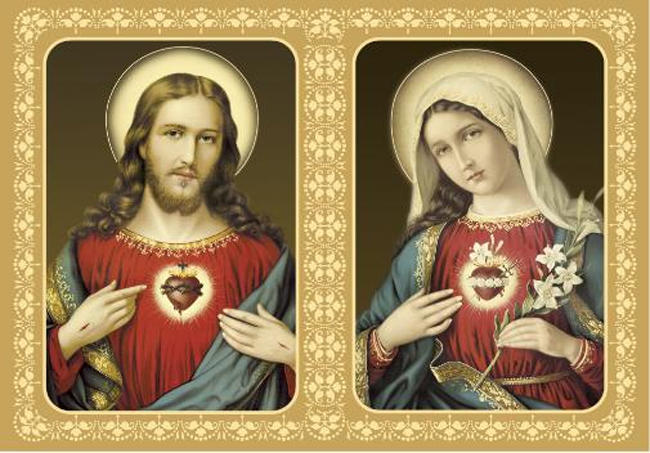Christian Art | Come, Lord Jesus | King James Audio Bible KJV
Luke 12: 35-38 | King James Audio Bible KJV | Servants Await Their Master
The thought of Jesus, here, now, 2024, is an invitation to remain vigilant and hopeful. It encourages believers to live each day with intentionality and joy, actively preparing for Christ’s return. This thought is not mere theological exercise; rather it is call to embody teachings of Jesus in our daily lives, making each action a step closer to welcoming Jesus back. This vision for a new era in Christian thought and practice invites Christians to reassess our understanding of Biblical prophecies in the light of modern developments and societal changes. The prayer is to nurture vibrant, living faith that actively anticipates and prepares for the Parousia, transforming our individual lives and our communities in the process.
The thought of Jesus in our time, 2024, lies in bridging the gap between ancient scriptural promises and complexities of our current era. By delving into the mystery of the Parousia, we invite Christians to contemplate how timeless messages of the Bible resonate with challenges and opportunities of our time. This requires a balancing act between maintaining doctrinal purity and adapting to contemporary understandings.
The thought aims to foster dialogue that is both respectful of traditional Christian beliefs and receptive to questions and insights that arise in a rapidly evolving world. This seeks to offer a perspective that is not only theologically sound but also relevant and engaging for today’s believers, encouraging Christians to deepen faith amidst the realities of modern life.
Theological Foundations: Promise Of Christ’s Return
Promise of Christ’s return is a central tenet of Christian faith, deeply embedded in scriptural teachings. In Revelation 22:7 (KJV), where Christ declares, ‘Behold, I come quickly,’ we find the essence of Christian eschatological hope.
Theologians, including very recently N.T. Wright, have offered diverse perspectives on this topic. Wright emphasizes a metaphorical interpretation, suggesting that the Second Coming should be understood in terms of Christ’s ongoing presence in the world through the Church and the Holy Spirit. This interpretation aligns with contemporary understandings of the Kingdom of God as a present reality, not just a future promise.
Contrastingly, evangelical scholars such as and including John Piper advocate for a more literal interpretation, emphasizing physical return of Christ. This perspective resonates with many believers who anticipate a tangible, world-altering event, aligning with a traditional view of the Parousia as depicted in the Book of Revelation. The thought: Jesus 2024 occupies such varying viewpoints, offering Christians understandings of this fundamental Christian belief.

Historical Perspectives: Echoes Of Past Prophesies
Expectation of Christ’s return has historically generated significant fervour and speculation. Early Christians lived in eager anticipation of the Parousia, a sentiment captured in writings of the Apostle Paul and the early Church fathers. This historical lens offers valuable insights into how early believers interpreted and reacted to Christ’s promised return.
Moving forward in history, we encounter instances where predictions of the Parousia sparked widespread movements, such as the Great Disappointment experienced by the Millerites in the 19th century. These historical episodes serve as cautionary tales, reminding of risks of date-setting and of the importance of interpreting biblical prophecies with humility and discernment.
Contemporary Christian leaders, including Pope Francis, have warned against obsession with predicting the exact timing of the Parousia. In his encyclical ‘Laudato si’, Pope Francis emphasizes the importance of stewardship and care for creation as integral to living in anticipation of Christ’s return, rather than focusing on deciphering prophetic timelines. This approach aligns with a broader understanding of preparing for the Parousia, focusing on living out Christ’s teachings in the present.
Contemporary Interpretations: Envisioning The Parousia Today
In our modern, interconnected world, the thought of Jesus, 2024, brings forth unique interpretations of the Parousia. Intersection of advanced technology, global communication, and diverse cultural perspectives opens up new ways of envisioning how Christ’s return might unfold.
Theologians such as and including Timothy Keller have spoken about the relevance of the Gospel in today’s urban, digital society. Keller’s insights into how Christian teachings can be lived out in modern cities provide a framework for understanding how the Parousia might be experienced in our globalized world. He suggests that transformative power of Christ’s return could have profound implications on societal structures, technology, and human relationships.
Furthermore, impact of digital media and the internet on religious discourse cannot be overlooked. Widespread availability of information and diverse viewpoints challenges traditional modes of theological interpretation and dissemination. In this context, the thought: Jesus 2024 becomes a platform for exploring how digital culture might shape perception and experience of the Parousia, potentially enabling a global witnessing of this event unlike any previous era.

![]()
Social Responsibility: Living With Purpose
The thought of Jesus being with us now calls Christians to heightened sense of social responsibility. Reflecting on Matthew 25:35-36, where Jesus speaks of caring for the needy as akin to caring for himself, Jesus, we discover necessity for Christians actively to contribute to social justice, environmental stewardship, and community support. This is not just about awaiting a future event; it’s about embodying values of the Kingdom of God here and now.
Pope Francis, in his addresses and writings, consistently emphasizes Christian duty towards the poor and the environment. His encyclical ‘Fratelli Tutti’ advocates for a universal fraternity that transcends religious, cultural, and national barriers, resonating deeply with the ethos of the thought of Jesus this year – and Parousia. This perspective encourages believers actively to engage in creating a world that reflects the love and justice of Christ’s teachings.
Christian author Rick Warren has emphasized the role of the Church in addressing societal issues. Warren’s ‘Purpose Driven Life’ speaks to the individual’s responsibility in contributing to God’s broader plan for humanity, a theme that aligns seamlessly with the proactive stance encouraged in anticipation of Jesus. This collective action, grounded in faith, becomes a powerful testament to the transformative potential of Christian living.

Comparative Eschatology: Shared Human Hope
The thought of Parousia within the broader context of comparative eschatology reveals a shared human longing across various religious traditions for a resolution to the world’s struggles and injustices.
In examining other religious eschatologies, such as Islamic beliefs about the Day of Judgment or Hindu concepts of a cosmic cycle, we find common themes of renewal, justice, and divine intervention. This comparative study helps to appreciate the universal nature of eschatological hope and its significance in human culture and spirituality.
Christian theologian Miroslav Volf has engaged in interfaith dialogues that highlight the importance of understanding these shared eschatological visions. Volf’s work emphasizes the potential for these beliefs to foster mutual respect and collaboration among different faith communities. In context of the thought of Jesus in this moment, this year, such a dialogue becomes a means to build bridges, encouraging a collective pursuit of peace and justice in anticipation of a transformed world.
Cultural Impact: Parousia In Modern Consciousness
Anticipation of the Parousia has a profound impact on contemporary culture, influencing artistic expression, literature, and media. There are hopes and apprehensions surrounding the thought, revealing deep-seated influence of this belief on the collective psyche.
Christian artists and writers, such as and including C.S. Lewis, have long used their work to explore and express eschatological themes. Lewis’s ‘The Great Divorce’ and ‘The Chronicles of Narnia’ series offer imaginative portrayals of heaven, hell, and the final judgment, providing insight into how the Parousia might be conceptualized in a modern context. These works demonstrate a power of art and storytelling in shaping our understanding of profound theological truths.
Moreover, prevalence of apocalyptic themes in mainstream media and entertainment reflects a broader cultural fascination with the end times. Movies, books, and television shows often depict scenarios of global cataclysm and renewal, mirroring the biblical narrative of the Parousia. This widespread cultural engagement with eschatological themes underscores relevance and urgency of the thought of Jesus in contemporary society.

Ethical Reflections: Weight Of Moral Choices
The thought of Jesus this year, 2024, brings ethical considerations to a forefront of Christian consciousness. There are modern ethical dilemmas in light of Christ’s anticipated return. This poses challenging questions about how our daily choices and actions align with the values Jesus taught and how they might be judged in the context of Jesus’ imminent return.
Christian ethicist Stanley Hauerwas argued for the importance of living a life that reflects the teachings of Jesus, especially in the face of societal pressures and moral complexities. Hauerwas’s emphasis on the Church as a counter-cultural community that models Christ-like love and justice provides a framework for understanding ethical living in anticipation of Jesus.
Furthermore, ethical implications of technological advancements, environmental crises, and global inequalities demand a nuanced approach to Christian ethics. How do issues like artificial intelligence, climate change, and economic disparity fit into the narrative of the Parousia? This discussion encourages Christians to consider how our engagement with these contemporary issues reflects our readiness for Jesus.
Global Perspective: A World United In Anticipation
Envisioning a world united by anticipation of Jesus opens up fascinating scenarios. How might different cultures and nations respond to the reality of Christ’s imminent return, exploring potential for both unity and conflict in this global event?
Diversity of global Christian traditions offers a multitude of perspectives on the Parousia. For example, vibrant and expressive faith practices in African and Latin American Churches might inspire a joyous, communal anticipation of Jesus, while more contemplative traditions of Eastern Orthodoxy could foster a deep, introspective preparation for Christ’s return.
Moreover, global events, such as the COVID-19 pandemic, in shaping our collective consciousness cannot be ignored. Such crises have highlighted our shared vulnerabilities and interconnections, potentially serving as catalysts for a renewed sense of global unity and purpose in anticipation of Jesus 2024. This global awakening could be a powerful force for reconciliation, peace-building, and collaborative action across national and cultural divides.
References:
- N.T. Wright: A British New Testament scholar, Wright is known for his work on Jesus and the Apostle Paul. He served as the Bishop of Durham and currently works at Oxford.
- John Piper: An American Reformed Baptist pastor and author, Piper is known for his book ‘Desiring God’ and advocates for a life centered on God’s glory.
- Pope Francis: The first Jesuit Pope and the first from the Americas, Francis is known for his focus on mercy, the marginalized, and interfaith dialogue.
- Rick Warren: Author of ‘The Purpose Driven Life’, Warren is the founder of Saddleback Church and emphasizes a purpose-driven approach to faith.
- Miroslav Volf: A Croatian theologian at Yale Divinity School, Volf’s work focuses on reconciliation and the role of religion in a global context.
- Stanley Hauerwas: An American theologian and ethicist, Hauerwas taught at Duke University and is known for his work on Christian ethics.
- C.S. Lewis: A British writer and lay theologian, Lewis is best known for ‘The Chronicles of Narnia’ and Christian apologetics like ‘Mere Christianity’.








